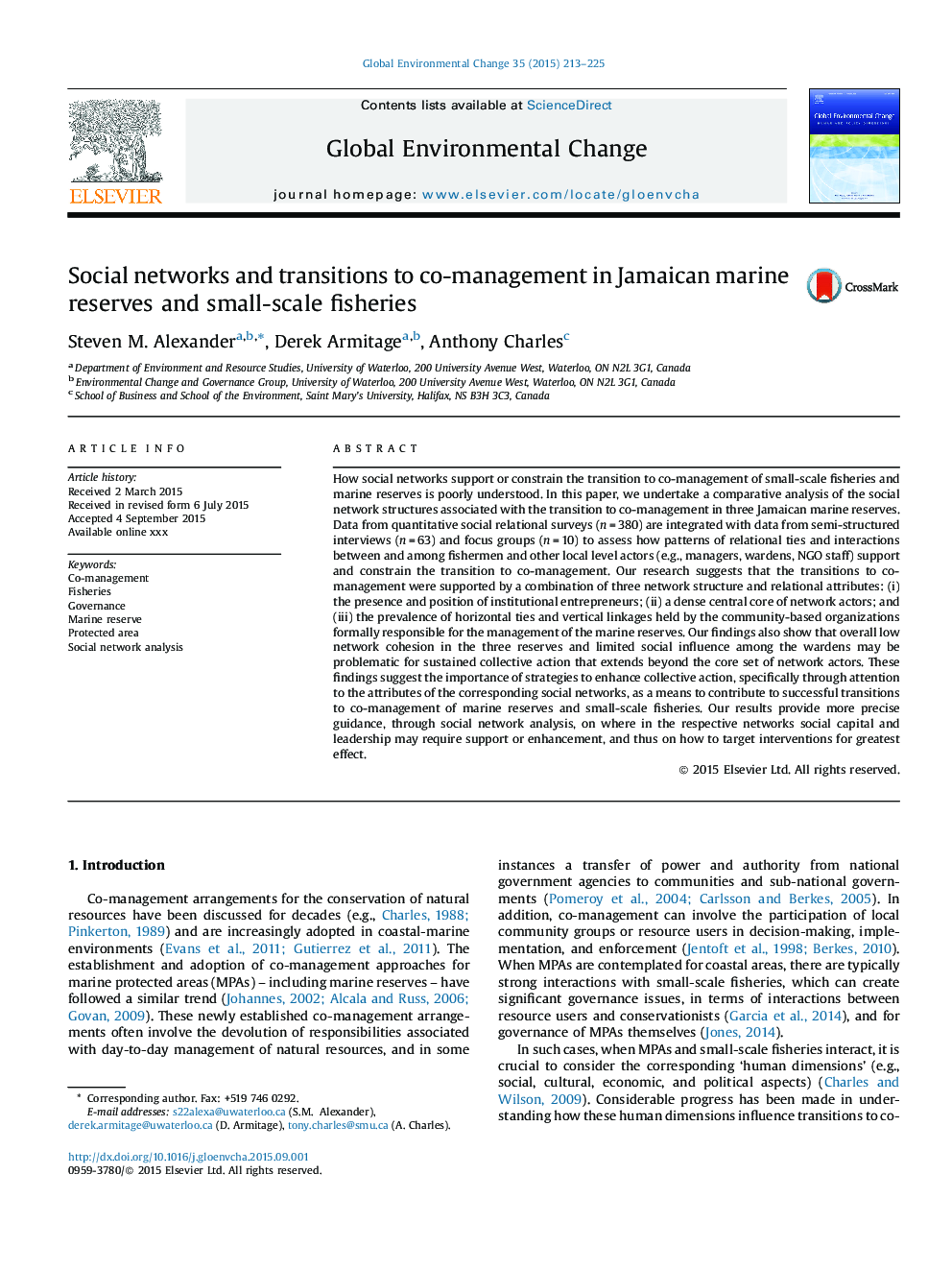| کد مقاله | کد نشریه | سال انتشار | مقاله انگلیسی | نسخه تمام متن |
|---|---|---|---|---|
| 7469681 | 1485123 | 2015 | 13 صفحه PDF | دانلود رایگان |
عنوان انگلیسی مقاله ISI
Social networks and transitions to co-management in Jamaican marine reserves and small-scale fisheries
ترجمه فارسی عنوان
شبکه های اجتماعی و انتقال به مدیریت هماهنگ در ذخایر دریایی جامائیکا و ماهیگیری کوچک
دانلود مقاله + سفارش ترجمه
دانلود مقاله ISI انگلیسی
رایگان برای ایرانیان
کلمات کلیدی
مدیریت همکاری، شیلات، حکومت، ذخایر دریایی، منطقه حفاظت شده، تجزیه و تحلیل شبکه شبکه،
موضوعات مرتبط
علوم زیستی و بیوفناوری
علوم محیط زیست
علوم زیست محیطی (عمومی)
چکیده انگلیسی
How social networks support or constrain the transition to co-management of small-scale fisheries and marine reserves is poorly understood. In this paper, we undertake a comparative analysis of the social network structures associated with the transition to co-management in three Jamaican marine reserves. Data from quantitative social relational surveys (n = 380) are integrated with data from semi-structured interviews (n = 63) and focus groups (n = 10) to assess how patterns of relational ties and interactions between and among fishermen and other local level actors (e.g., managers, wardens, NGO staff) support and constrain the transition to co-management. Our research suggests that the transitions to co-management were supported by a combination of three network structure and relational attributes: (i) the presence and position of institutional entrepreneurs; (ii) a dense central core of network actors; and (iii) the prevalence of horizontal ties and vertical linkages held by the community-based organizations formally responsible for the management of the marine reserves. Our findings also show that overall low network cohesion in the three reserves and limited social influence among the wardens may be problematic for sustained collective action that extends beyond the core set of network actors. These findings suggest the importance of strategies to enhance collective action, specifically through attention to the attributes of the corresponding social networks, as a means to contribute to successful transitions to co-management of marine reserves and small-scale fisheries. Our results provide more precise guidance, through social network analysis, on where in the respective networks social capital and leadership may require support or enhancement, and thus on how to target interventions for greatest effect.
ناشر
Database: Elsevier - ScienceDirect (ساینس دایرکت)
Journal: Global Environmental Change - Volume 35, November 2015, Pages 213-225
Journal: Global Environmental Change - Volume 35, November 2015, Pages 213-225
نویسندگان
Steven M. Alexander, Derek Armitage, Anthony Charles,
